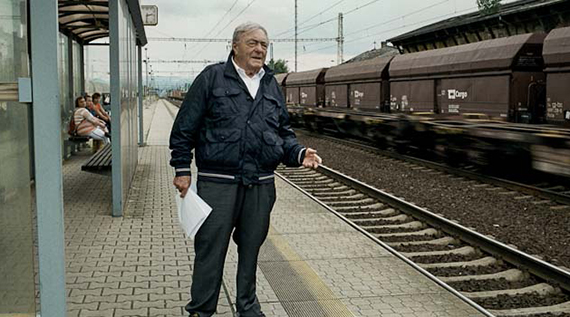Description from TIFF 2013 catalog by Thom Powers:
Claude Lanzmann spent several years interviewing survivors of, participants in and witnesses to the Nazis’ attempted eradication of the Jews. The resulting nine-and-a-half-hour film, Shoah, remains a monument to keeping that history alive. Since releasing the film in 1985, Lanzmann has continually returned to the era in films such as Sobibór, 14 octobre 1943, 16 heures and The Karski Report; in addition to investigating the Israeli Defense Forces in the film Tsahal and publishing his memoir The Patagonian Hare.
In The Last of the Unjust, Lanzmann revisits an interview he conducted in 1975 but never made public, with Benjamin Murmelstein who emerged from the war as a controversial figure. As a leading rabbi in Vienna at the start of the war, Murmelstein worked with Adolf Eichmann to arrange for the emigration of 120,000 Jews. The scheme saved lives and enriched Eichmann. Later the Nazis appointed Murmelstein as a Jewish Elder in Theresienstadt, the Czech camp used as a propaganda showcase. After liberation, he was widely considered a collaborator for his role overseeing the camp and did a stint in a Czech prison before settling in Rome.
The dialogue between Murmelstein and Lanzmann is a riveting exploration of contested history. Adding to the 1975 interview, Lanzmann makes contemporary visits to Austria, Poland, Israel and the Czech Republic, sharing his prodigious research. “During the week I spent with him, I grew to love him,” Lanzmann said of Murmelstein in a recent interview. “He does not lie: he is as harsh with others as with himself.”






